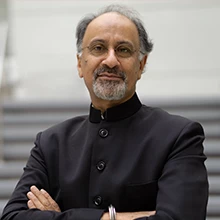 Populism poses a formidable development challenge. The 2025 ABCDE will explore how development economics can address it.
Populism poses a formidable development challenge. The 2025 ABCDE will explore how development economics can address it.
By most measures of human progress, the world is in better shape today than it has ever been—in life expectancy, in per capita GDP, and in literacy rates, among other things. Yet, a palpable dissatisfaction has taken root in many countries, at every level of income. The global economic system that has powered a lot of this progress over the last 80 years is now widely regarded as broken. Nearly two-thirds of the global electorate went to the polls last year and registered their displeasure with incumbents—including on income inequality, cultural insecurity, and elite institutions.
Populism, in short, is ascendant to an unusually synchronized degree, fueled by a collapse in the traditional consensus regarding policies needed for economic progress. This poses a formidable development challenge. It requires a nuanced understanding of the underlying causes as well as a strategic approach to addressing the concerns of affected populations.
Economic theory suggests that trade liberalization yields win-win outcomes in the aggregate for all. Yet the gains derived from liberalization have not been evenly distributed—just as liberalization itself has not been evenly distributed. In short, the realities encountered by millions globally have deviated markedly from the positive-sum outcomes predicted by theory. Some people have suffered losses even as most have prospered, and some countries have not played fairly in the market for goods, services, assets, and ideas.
Populism generates tensions not just within but across nations. Such tensions harm the mechanisms that connect people to the meaningful, and productive jobs that best match their abilities. These disruptions damage growth and development in the most profound sense—by depriving people of the dignity that comes from gaining control over their economic, social and ecological circumstances.
How can development economics meet this moment? This is, in fact, a session title from ABCDE—an annual conference scheduled this year for July 22 to 25 and organized by the World Bank in conjunction with the Center for Global Development and the Lee Kuan Yew School of Public Policy. ABCDE aims to assess the developments during the last decade, analyze the causes, and adjust our approach to economic progress.
The conference could not be more timely, as the world grapples with formidable challenges complicated by the sudden shock to international cooperation and trade. Each session over the four days will probe the most pressing problems to bring fresh ideas and approaches.
The first two days of the conference will be at the World Bank, where participants will explore the challenges and opportunities that could arise as populist movements influence economic and social policies. Experts will look into how populism could affect development policies, potentially reshaping national priorities and resource allocation. They will assess how a renewed commitment to multilateral institutions and frameworks could help tackle global challenges such as climate change, trade disputes, and geopolitical tensions. They will explore the transformative potential of AI technologies in healthcare, finance, education, and other sectors.
The final two days will be at the Center for Global Development, where attendees will focus on the challenges confronting low- and middle-income countries, and what can be done to address them in a time when more must be done with less. Discussants will evaluate the changing meaning of structural transformation and the implications of deepening and interdependent crises on human capital accumulation and poverty reduction. They will explore promising ways to restore progress, how to finance better service delivery, and how to go beyond the ambit of traditional education policy to overcome barriers to better learning outcomes. In addition, they will take an in-depth look at agricultural markets and their impacts on nutrition, and delve into the development impacts of migration—including the role of remittances, the so-called “brain drain,” growing skills gaps, and demographic shifts.
Bringing together some of the world’s leading economic thinkers, the conference will help identify the best way forward. Attendees will have the opportunity to explore a wide range of topics—from geopolitical shifts to unilateralism and multilateralism, and from growth to opportunity.




Join the Conversation